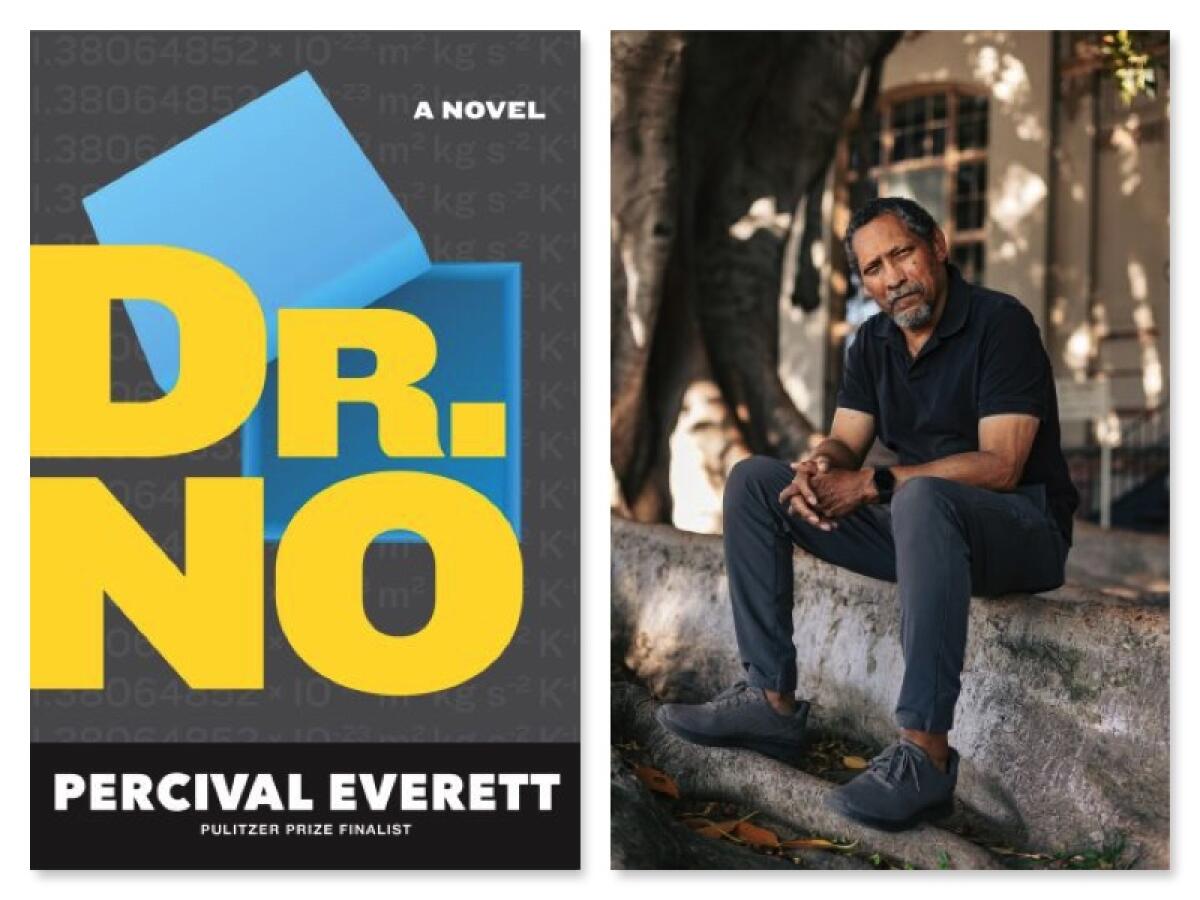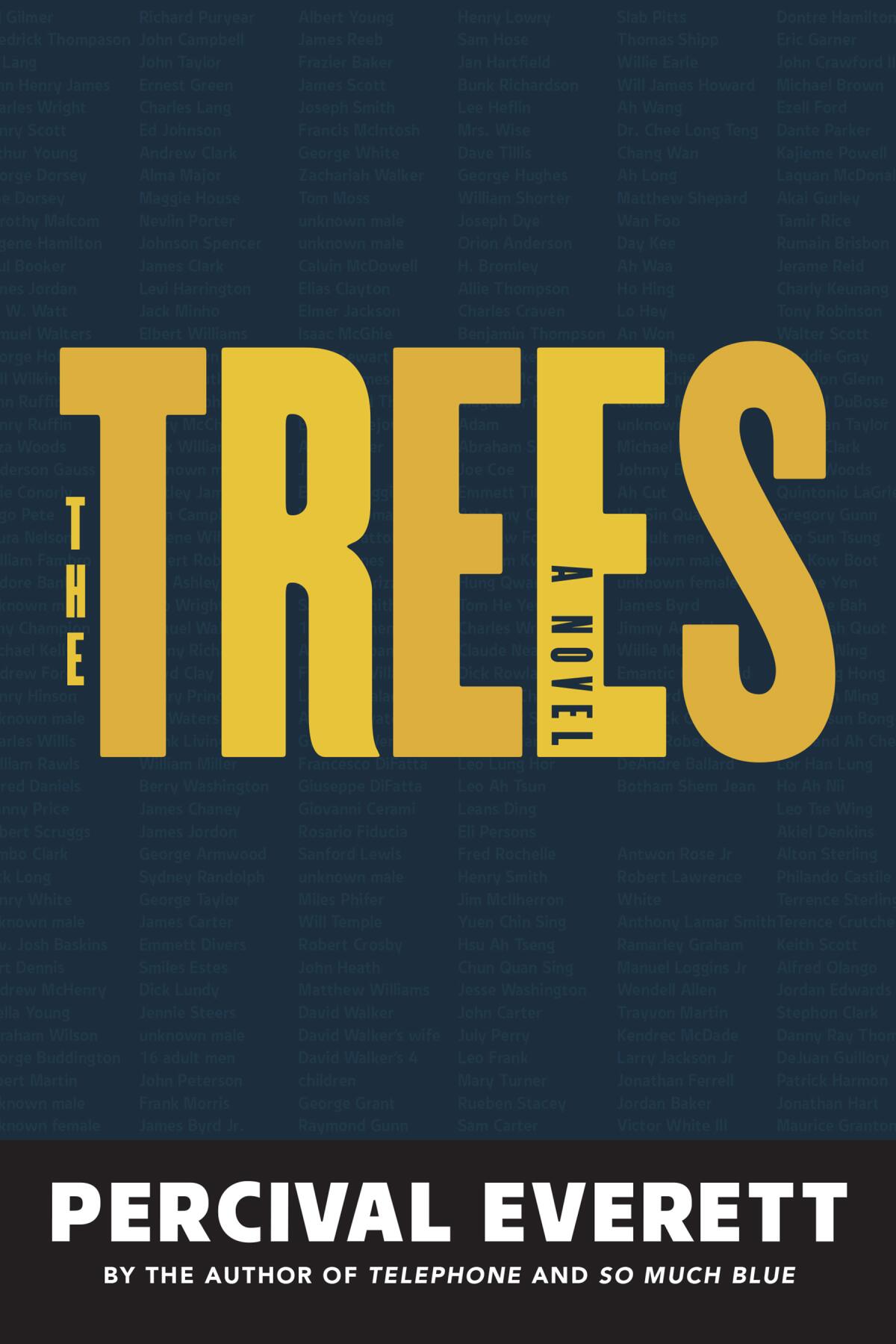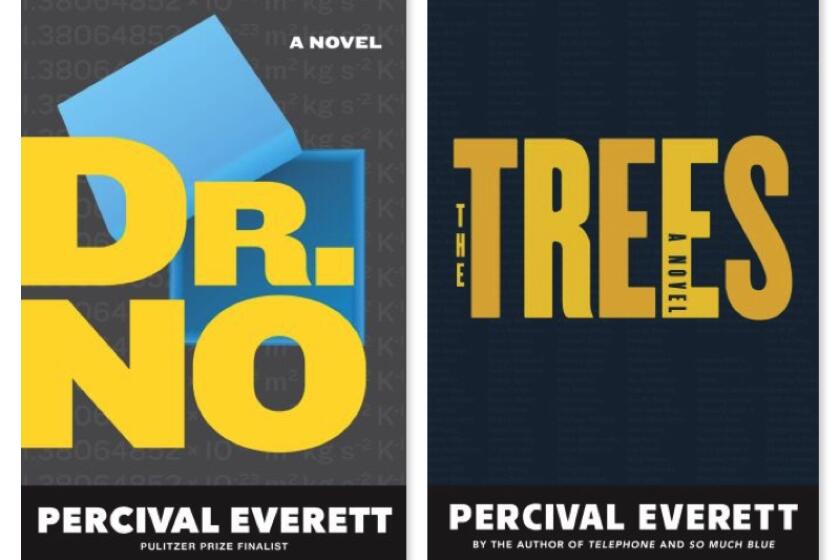Meet Percival Everett: 5 novels that showcase the L.A. writer’s enigmatic style

- Share via
Percival Everett’s newest book, “Dr. No,” is at once a spy caper, a philosophical study of the concept of “nothing” and a satire of the outsized worlds of billionaires.
Kirkus Reviews calls the novel a “good place to begin finding out why Everett has such a devoted cult.”
An English professor at USC, Everett has gained international accolades for his body of work: 34 books including novels, poetry, short story collections and a children’s story. This fall, “The Trees” was a 2022 finalist for the Booker Prize. His novel “Telephone” was a 2021 finalist for the Pulitzer Prize.
On Nov. 16 Everett joins the L.A. Times Book Club to discuss “Dr. No” with Times columnist LZ Granderson.
Everett was born in Georgia, raised in South Carolina and spent time in Wyoming before settling in Southern California in 1988. “I’ve been called a Southern writer, a Western writer, an experimental writer, a mystery writer, and I find it all kind of silly,” he says. “I write fiction.”
If you’re a longtime fan, or just discovering his work, here are five novels to savor — stories that show Everett’s distinctive, often playful, literary style.
‘Dr. No’ (2022)
Everett consistently plays with the tropes of western fiction, mysteries, thrillers, satire and philosophical fiction. Published this month, his new novel is another cross-genre hybrid featuring a cast of characters out of a 007 novel. The Star-Tribune describes “Dr. No” as a “breezy, strange, frequently hilarious, action-adventure story that’s rife with Everett’s talent for deadpan dialogue and vivid scene-setting” with “brainy tangents.”
A USC English professor, Everett’s books play with genre, language and our assumptions about race and gender.
‘Assumption’ (2011)
Everett delivers the familiar elements of a classic western — the quiet lawman who sets out to deliver justice, broken bad guys, women in trouble, a kindhearted mother — and then gradually undermines everything you think you know. Readers meet Ogden Walker, a deputy sheriff in the tiny town of Plata, N.M. When a body is discovered and a stranger comes to town, Walker will have to up his game to become the detective who solves the crime. As Everett reveals that all of your assumptions have been wrong, it dawns on you that you’ve missed the same important clues Walker has. And in that sere landscape, you watch as a man’s identity dries up and blows away.
‘So Much Blue’ (2017)
An abstract painter and family man with a wife and kids, Kevin Pace appears to live an idyllic life in New England. But as Everett pulls back the curtains on this domestic drama, the cracks in the paint are cast into relief. Pace confronts a white canvas, and as he works on it alone, readers are made privy to the secrets that itch beneath the painter’s skin like mosquito bites. Two events from his past trouble him. Everett takes readers back to 1979, when Central America was a war zone, and Pace traveled with a friend to retrieve a lost American. Years later, Pace himself disappeared in Europe, where an affair with a talented, much younger artist disrupted his life. Everett creates a work of art in which what’s beneath the painter’s brush are the lies we tell ourselves to live.
‘Telephone’ (2020)
Do you remember the party game of “Telephone,” where a statement, passed from one person to another, bears no resemblance to the original message? This is perhaps Everett’s most audacious novel. He wrote and published three different versions. Zach Wells is a paleobiologist and a geologist. Upon returning home from a research trip, he notices something is not quite right with his adolescent daughter. Campus politics are making his teaching job harder than he wants it to be. And in opening a new shirt, he finds a note asking for help in one of its pockets. The three plot lines become entangled like a spaghetti model for an approaching hurricane, but readers never lose the clearest track Everett lays down to guide them through. “Telephone” is a novel about a man who sets out to be a hero but discovers that the life-or-death choices that confront a rescuer bring existential questions that perhaps don’t matter regardless of the choice he makes. In each version, different decisions are made, resulting in a “choose your own adventure” for adults.

‘The Trees’ (2021)
Shortlisted for the Booker Prize, Everett’s comic masterpiece is about zombies who come back to exact revenge for acts of racist hate. Everett skewers classic Southern novels that portray Black people as childlike simpletons in need of the assistance of white folks. In “The Trees,” Everett reverses such stereotypes to depict white folks who lynched their neighbors as slapstick clowns who resort to violence. Beneath the snappy dialogue, however, Everett questions how we can respond to this country’s history of racial terror. Is it better to portray it in academic terms so that knowledge enters as learning? Or is it better to create cinematic dramas — even comic books — to catch a viewer’s conscience? Everett makes the reader laugh so hard, it takes a minute to realize you’ve been stabbed with a dagger.
Book Club: If You Go
What: Novelist Percival Everett joins the L.A. Times Book Club to discuss “Dr. No” with columnist LZ Granderson.
When: 7 p.m. Pacific Nov. 16. Doors open at 6 p.m.
Where: Autry Museum of the American West, 4700 Western Heritage Way, Los Angeles. Enjoy an evening of words, wine, live music and browsing the museum after hours. Get tickets.
Book club newsletter: Sign up for the latest news and events: latimes.com/bookclub
More to Read
Sign up for our Book Club newsletter
Get the latest news, events and more from the Los Angeles Times Book Club, and help us get L.A. reading and talking.
You may occasionally receive promotional content from the Los Angeles Times.











